
A prisoner of war (POW) is a person who is held captive by a belligerent power during or immediately after an armed conflict. The earliest recorded usage of the phrase "prisoner of war" dates back to 1610.

George Catlett Marshall Jr. was an American army officer and statesman. He rose through the United States Army to become Chief of Staff of the U.S. Army under Presidents Franklin D. Roosevelt and Harry S. Truman, then served as Secretary of State and Secretary of Defense under Truman. Winston Churchill lauded Marshall as the "organizer of victory" for his leadership of the Allied victory in World War II. During the subsequent year, he attempted to but failed to avoid the impending Chinese Civil War. As Secretary of State, Marshall advocated for a U.S. economic and political commitment to post-war European recovery, including the Marshall Plan that bore his name. In recognition of this work, he was awarded the Nobel Peace Prize in 1953, the only Army general ever to receive the honor.

The Bataan Death March was the forcible transfer by the Imperial Japanese Army of 75,000 American and Filipino prisoners of war (POW) from the municipalities of Bagac and Mariveles on the Bataan Peninsula to Camp O'Donnell via San Fernando.
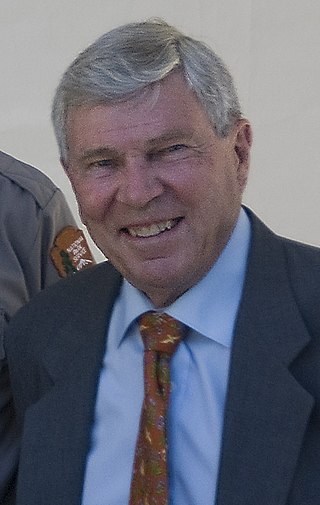
James Munro McPherson is an American historian specializing in the American Civil War. He is the George Henry Davis '86 Professor Emeritus of United States History at Princeton University. He received the 1989 Pulitzer Prize for Battle Cry of Freedom: The Civil War Era. McPherson was the president of the American Historical Association in 2003.

Sir Antony James Beevor, is a British military historian. He has published several popular historical works, mainly on the Second World War, the Spanish Civil War, and most recently the Russian Revolution and Civil War.

Changi Prison Complex, often known simply as Changi Prison, is a prison complex in the namesake district of Changi in the eastern part of Singapore. It is the oldest and largest prison in the country, covering an area of about 50 ha. Opened in 1936, the prison has a rich history.

Libby Prison was a Confederate prison at Richmond, Virginia, during the American Civil War. In 1862 it was designated to hold officer prisoners from the Union Army, taking in numbers from the nearby Seven Days battles and other conflicts of the Union's Peninsular campaign to take Richmond and end the war only a year after it had begun. As the conflict wore on the prison gained an infamous reputation for the overcrowded and harsh conditions. Prisoners suffered high mortality from disease and malnutrition. By 1863, one thousand prisoners were crowded into large open rooms on two floors, with open, barred windows leaving them exposed to weather and temperature extremes.
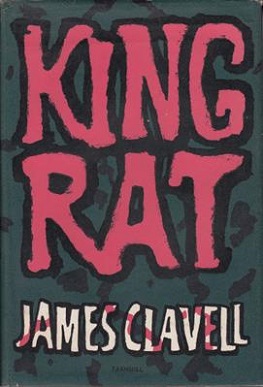
King Rat is a 1962 novel by James Clavell and the author's literary debut. Set during World War II, the novel describes the struggle for survival of American, Australian, British, Dutch and New Zealander prisoners of war in a Japanese camp in Singapore. Clavell was a prisoner in the Changi Prison camp, where the novel is set. One of the three major characters, Peter Marlowe, is based upon Clavell.

The George C. Marshall Foundation in Lexington, Virginia, was commissioned by President Harry S. Truman in order to preserve the papers of General George C. Marshall. Marshall served as Army chief of staff, secretary of state and defense and received the Nobel Peace Prize in 1953 for the Marshall Plan.
Christopher Catherwood, is a British author based in Cambridge, England and, often, in Richmond, Virginia. He has taught for the Institute of Continuing Education based a few miles away in Madingley and has taught for many years for the School of Continuing Education at the University of Richmond. He has been associated each summer with the University of Richmond's History Department, where he is its annual summer Writer in Residence, and where most of his recent books have been written.
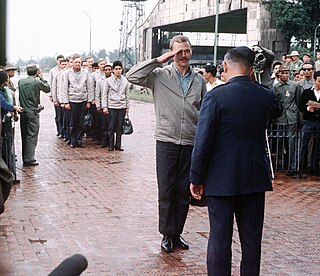
Operation Homecoming was the return of 591 American prisoners of war (POWs) held by North Vietnam following the Paris Peace Accords that ended U.S. involvement in the Vietnam War.
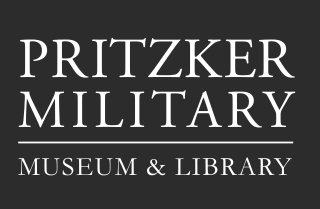
The Pritzker Military Museum & Library is a non-profit museum and a research library for the study of military history on Michigan Avenue in Chicago, Illinois. The institution was founded in 2003, and its specialist collections include material relating to Winston Churchill and war-related sheet music.

The 20th Indiana Volunteer Infantry Regiment was an infantry regiment that served in the Union Army during the American Civil War. The Regiment was officially raised on July 22, 1861, by William L. Brown, the first Colonel of the Regiment, in response to President Lincoln's call for volunteers. At the time of muster, the regiment had 9 fighting companies lettered A-K along with a staff company for a total of 10 companies, roughly 1000 men. The 20th Indiana saw engagements in most of the major battles of the American Civil War, including the action between the first ironclads at Hampton Roads, the Battle of Fredericksburg, the Battle of Gettysburg, and the Siege of Petersburg. The Regiment was part of the 1st Brigade, 3rd Division, III Corps for the duration of the war.

America’s National Churchill Museum, is located on the Westminster College campus in Fulton, Missouri, United States. The museum commemorates Sir Winston Churchill, the former Prime Minister of the United Kingdom, and comprises three elements: the Church of St Mary Aldermanbury, the museum itself, and the Breakthrough sculpture. In 1677, the church had been renovated by English architect Christopher Wren.
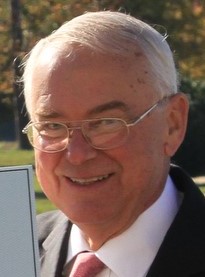
Paul Edward Galanti is a retired Commander in the United States Navy and Naval Aviator. Serving on active duty from 1962 to 1982, he was a Prisoner of War from 1966 to 1973 during the Vietnam War. He was also a member of the Swift Boat Veterans for Truth, and the 2nd commissioner of the Virginia Department of Veterans Services. He was married to the former Phyllis Eason, who died on April 23, 2014. He has two grown sons.
Carlo Winthrop D'Este was an American military historian and biographer, author of several books, especially on World War II. He was a decorated U.S. Army lieutenant colonel. In 2011, he was awarded the Pritzker Literature Award for Lifetime Achievement in Military Writing. D'Este died at age 84 in Cape Cod, Massachusetts.
Stanley Wakefield Harris CBE was an early twentieth century all-round sportsman regarded as one of the greatest all-rounders to have played for the British and Irish Lions. As a rugby union international, he represented the England in 1920, and the British Lions in 1924. He also turned down a place in the Great Britain Olympic squad in 1920, became a South African boxing champion and represented England in polo, all in between serving in both the First and Second World Wars.

Kenneth A. Clarke serves as the executive director for Rescue Village, a humane society located in Geauga County, Ohio. He had previously served as the president and CEO of Pritzker Military Museum and Library in Chicago. He has also authored, published, edited and produced works as Kenneth Clarke and KC Clarke.
AGH Rostrum Club Changi was a Rostrum Club formed during World War II at the Prisoner of War camp at Singapore's Changi Prison. The club was formed by members of the Australian Army's 13th Australian General Hospital (AGH), 8th Division AIF and probably included other allied servicemen.














